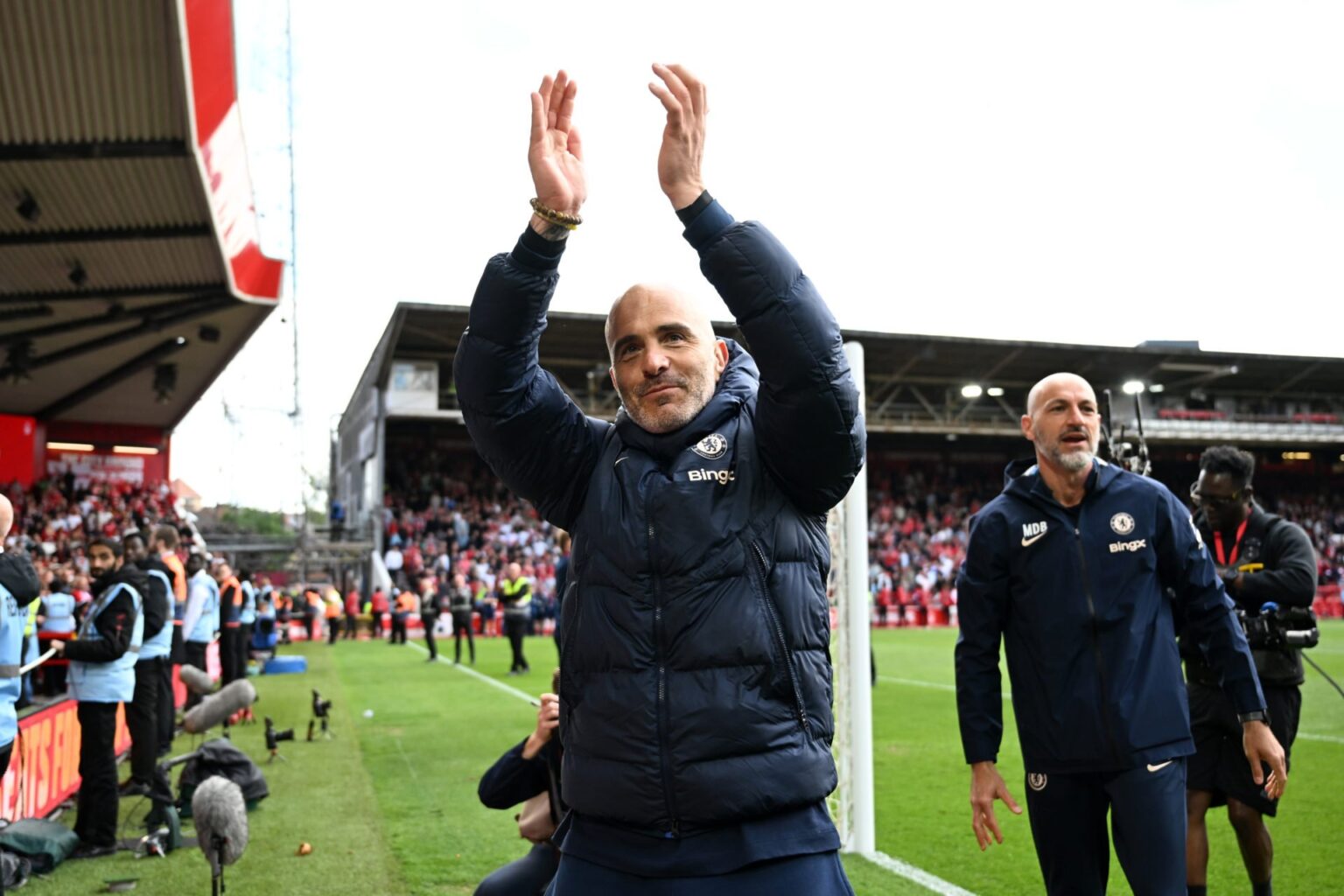Chelsea confirmed their place in next season’s Champions League on the final day of the Premier League season with a brilliant 1-0 win against Nottingham Forest.
Levi Colwill’s goal was enough to spark wild celebrations at full-time, with Enzo Maresca not forgetting those who doubted his side’s chances of achieving their goals.
One of the biggest positives of top-level European nights returning to Stamford Bridge is the financial opportunities it unlocks, after two years without being in the top four.
The Blues already know they will face some big sides in the group stages as part of the new format of the competition.
Financial expert Adam Williams has explained how the revamp, which Chelsea pushed for in the first place, will have significant financial bonuses for them.
He said: “Chelsea were one of the clubs that lobbied for the revamp of the Champions League format, which has been a game-changer for English clubs in particular.
“As an aside, their support of more games in Europe completely contradicts Boehly’s criticisms of the crowded matchday calendar. It’s the games that mean less to them but more to smaller clubs, FA Cup third-round replays for example, that the owner is talking about.
“Anyway, the 36-team Champions League format. UEFA pay out across three different categories, only one of which is related to performance on the pitch in a given season’s competition.
“Each participating club gets a flat fee of about £16m before a ball is kicked. Then, there is the ‘value pillar,’ which is based on contributions to the TV pool and UEFA club coefficient rankings.
“The UK broadcast market is one of the biggest, which in turn Chelsea will be one of the biggest beneficiaries. They are 7th and 11th respectively in the five and 10-year UEFA club coefficient, which is also a big plus in the value pillar.
“So I’d estimate that they’d effectively have about £50m from UEFA in the bank even before performance-related prize money in the Champions League next season.“
Chelsea players set for big bonuses
Todd Boehly and co have made it very clear that they are not looking to sign players starting on big wages. This is one of the main reasons behind them not yet pursuing a move for Victor Osimhen.
However, those who do join will know they have the chance to increase their wages based on performances, including playing amongst Europe’s elite.
Williams went on to explain that while the players will be in for a big bonus, the benefits far outweigh the negatives as far as the Blues are concerned.
He said: “One significant factor to consider, however, is the bonus payments to players and staff that come with Champions League qualification. Chelsea have made quite a big song and dance about their move to an incentive-based contract structure, so I think bonuses will eat into their net profit from the Champions League more than most.
“Look at Arsenal, for example, whose wage bill jumped by over £90m when they returned to the Champions League last season. Not all of that rise is attributable to the Champions League bonuses, but a significant proportion is.
“With that said, for the competition to be really, really valuable, it’s the performance-related prize money from UEFA and the tangential benefits in terms of commercial and matchday income that really make the difference.
“The English teams that finished in the top eight of the Champions League league phase each got upwards of £30m in prize money.
“On top of that, they have all had four extra matches at home. Chelsea have a small stadium in the context of the Big Six, but they are actually one of the biggest earners on a per-fan basis.
“They earned about £3m per match on average last season. In the Champions League, where you can charge premium prices, I’d expect that to be £4m, maybe even £5m depending on how much the owners risk incurring the wrath of fans with rising ticket prices. Hopefully, they’ll be able to push the envelope more with general hospitality prices than general admission. In any case, you could be talking an extra £20m in matchday income.
“Your sponsorship income will increase too. Chelsea can go to a front-of-shirt sponsor now and offer them Champions League football. There will also be bonuses from existing sponsors as well, plus a potential retail boom. I think you could estimate the overall benefit conservatively at £5m.
“So you’ve got £50m from UEFA plus an extra £25m from commercial and matchday. That’s £75m. Make it into the knockouts via the top eight and that’s another £30m or so. Progress throughout the competition then can be worth up to another £54m in a best-case scenario, plus three more matchdays at home. So next season’s Champions League could be worth anything from £75m to maybe £175m all-told to Chelsea. There are a lot of variables.
Nowadays, you also have the benefit of qualifying for the expanded Club World Cup if you win the Champions League. If FIFA make a success of this summer’s tournament, then next season’s Champions League winner might get £40-50m from the 2029 Club World Cup too. Then there’s Super Cup revenue on top of that.
“I think all that goes to show that it’s about the doors that the Champions League unlocks as much as it is about getting there itself.“
